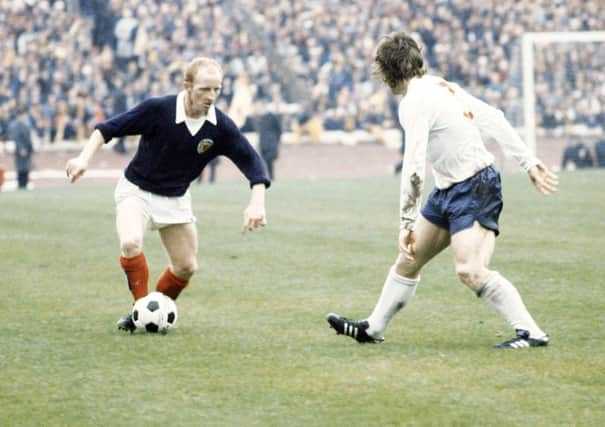Donald Ford: Safety-first coaching kills originality


The number of youngsters who wish to take part in football from an early age nowadays, whether that is a relaxed kick-about in the park or part of organised youth football, has clearly declined; there is so much alternative recreation or entertainment available to them now. To the eternal credit of many adults around the country, however, there are still large numbers willing to arrange and organise weekly sessions – and matches – for those youngsters whose passion still remains with football. It is not the army of tireless volunteer coaches and helpers to whom the following observations are directed.
Some time ago, I was severely criticised in an exchange of views in The Scotsman on the standards of coaching in Scotland, after suggesting that individual skills had been forsaken in the tedious pursuit of playing the ball to feet. Not coaching genuine attacking skills (the disappearance of “forwards” is especially distressing) has removed huge potential excitement. In essence, a new generation of young players, the vast majority of whom have been destined to join the swelling squads of staid, predictable midfielders, has done little or nothing to encourage the “older” football fan to continue to outlay increasingly large amounts on spectating.
Advertisement
Hide AdAdvertisement
Hide AdNow, before the younger brigade of modern coaches or managers starts to heap displeasure on an ageing ex-player, it has to be said that there are better standards in some aspects of the sport. Qualities in close control of the ball and passing with accuracy are probably a considerable degree more proficient. Players’ physique is more developed and stamina is also arguably better. Central defenders are, in most sides, quicker than of yore. “Green shoots” are appearing; Tynecastle is a clear example, while several of the Premiership sides are obviously working hard too. There, however, the positives begin to dry up.
It is interesting – and enlightening – to listen to commentators and pundits as they describe live football on radio or television nowadays. “Physical presence”, “hard shift”, “terrific stamina” and “great strength” are regularly reported. There is also evidence of that modern phrase “technical ability”. This description appears to have replaced “football skills” as the language of the current game has developed. Rarely during commentary or summing up is the word “skill” ever mentioned.
It is the skills, of course, which have disappeared and, sadly, we are not likely to see many of them return in a hurry. You need only the fingers of one hand to count the number of times over 90 minutes that players take on opponents with the ball at feet, even in one-on-one situations. Is it fear that makes them turn back or look for an easy pass sideways?
The obsession with playing the ball “to feet” has, virtually, eliminated movement or running “off the ball”. A player with the ball, looking for his next move, is not capable of doing anything other than playing the ball to feet when the constant mindset of his team-mates is to make themselves available to take a simple pass. Rather than finding a space into which the ball might be played, and thus creating real problems for defenders, they will take the easy option. Having said that, the presence of only one genuine “forward” in many current teams has made it all much harder, if not impossible, to achieve.
It is equally disappointing that the absence of movement off the ball has created almost static patterns at dead ball situations. There is little movement or imagination at throw-ins, while free kicks in potentially dangerous positions inevitably result in nothing other than a hopeful lob into a penalty area awash with players of both sides scrapping/shoving/pulling each other… no thought or skills or movement off the ball to give the kick-taker some options.
It would be interesting to discover the real reasons for previously faithful football followers giving up their traditional weekly visit to Scottish grounds. Lack of competition may well be near the top of their list, but it would be a real surprise, particularly among those older fans who now stay at home or do “other things”, if the disappearance of exciting and entertaining skills was not a major factor.
Ironically, much of this criticism can genuinely be directed towards standards in England too. There is much boredom in matches which boast the presence of many “star” players; few of them, however, are highly skilled “forwards”. Similar absence of movement, lack of imagination and a dearth of individual skill is presented. With the astonishing amount of money which is being expended, however, particularly on a never-ending stream of imported players, the opportunity to witness some exciting football should be greater. At many matches, nevertheless, there is yet much predictability.
To a certain extent, it is correct to say that “the product depends upon the competition”. If the attraction of the product, however, has lost its intensity through “safety first” coaching and declining skills, surely that needs to be addressed – at least in Scotland – as urgently as any search for a sponsor or a television contract.
• Donald Ford is a former Hearts and Scotland footballer